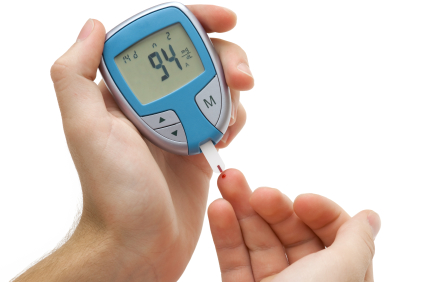Insulin resistance is defined as a decreased sensitivity of tissues to glucose delivery by insulin. Insulin acts on receptors of cells, including muscles, fat cells, liver cells, and other tissues, all of which rely on glucose for energy. When they are less sensitive, glucose remains in the blood instead of going into tissues, resulting in elevated blood sugar levels. Insulin resistance may be asymptomatic in the early stages but later can become type 2 diabetes, elevated cholesterol, obesity, and even hypertension.
Insulin resistance and hypothyroid
In a review paper, authors found that dysregulation of thyroid hormones can trigger insulin disturbances. One of the factors which cause blood sugar imbalances is when thyroid hormone levels are out of “normal” range, both when it’s too high or too low. This can occur in cases of hypothyroidism, subclinical hypothyroidism and hyperthyroidism. Studies suggest that the severity of thyroid dysfunction correlates with the level of insulin resistance.
What is the relationship between thyroid and blood sugar levels?
In hyperthyroidism, the body demands more insulin, because metabolism is accelerated and uses more energy. High thyroid levels also stimulate the liver to produce more glucose, which increases blood sugar levels. Hyperthyroidism causes both tissue resistance to insulin, and accelerated insulin degradation, both of which prevent glucose from getting into cells.
In cases of hypothyroidism or subclinical hypothyroidism, low levels of thyroid hormone have been shown in some research to be correlated with lower sensitivity of tissues to insulin. Also in this case, insulin is less effective at increasing blood flow to tissue, which lowers the amount of glucose delivered to tissues.
The relationship of thyroid hormones to blood sugar regulation is not just a one-way street; reduced insulin sensitivity might have an influence on thyroid hormone balance. The liver has a role in converting thyroid hormone from the inactive (T4) to active form (T3), and that function is known to be impaired when tissues are less sensitive to insulin activity.
Diet, exercise, and nutrients such as chromium, vanadium, and alpha lipoic acid can help improve blood sugar balance, but don’t forget to check the thyroid. Thyroid tests may not always accurately reflect thyroid levels, especially in subclinical hypothyroidism and Wilson’s Temperature Syndrome. Insulin sensitivity can improve with proper thyroid treatment, by using T3, T4 or glandular-derived Insulin sensitivity can improve with proper thyroid treatment, which can include using T3, T4, or glandular-derived armor thyroid hormone depending on the circumstances. Nutrients and herbs can support the thyroid as well, including minerals such as iodine and selenium, and herbs such as blue flag, guggul, and ashwagandha to support thyroid production.
Citation:
Endokrynol Pol 2014; 65 (1): 70–76)” Endokrynologia Polska 2014;65(1):70-76.


Leave A Comment